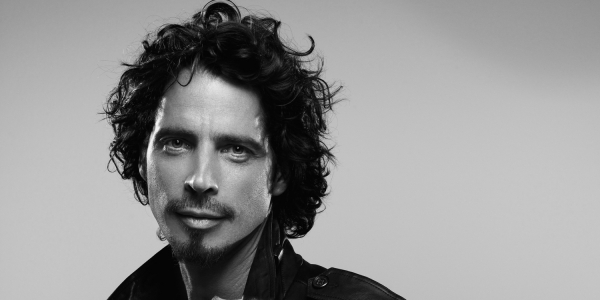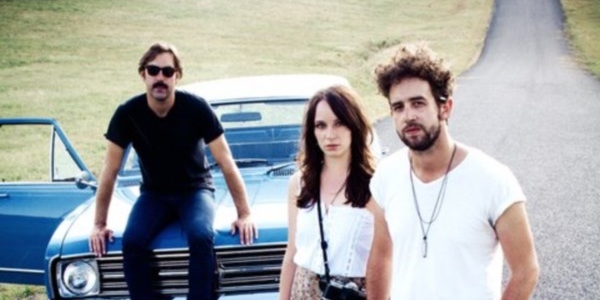Speaking with Cornell, it’s practically inevitable that the Soundgarden reunion be our initial focus; not just because of my own burning curiosity, but because our interview was deferred a day so that Chris could complete one of the few remaining recording sessions for the new album. “For this one, I was by myself, doing vocals, and also writing,” Cornell explains. “In terms of material, I think we’re good now. I think we’re done.”
As for how the new material might compare to the band’s genre-defining albums of the 90s, Cornell maintains an air of mystery. “Well you know, what we do always feels new,” he says. “We never repeated ourselves, ever. If anything was too reminiscent of something else we’d done, we wouldn’t bother spending time on it.
“Having said that, everybody has their sensibilities. Anyone who writes songs has their sensibilities, and those are [still] recognisable. That’s all intact. And I feel like it’s also very vital, because that’s how we are together. When a certain amount of time goes by, some people lose their… I guess the best word for it is ‘passion’. But we all still have that. You never know if that’s going to be there or not. And fortunately, in my life, it always has been.”
When asked how the band (or, more specifically, Cornell and lead guitarist Kim Thayil) have managed to overcome the creative differences widely believed to have caused their breakup in 1997, Cornell not only denies that this was the cause of the breakup, but even declares that a breakup never really occurred.
“Well, that’s kind of BS,” he sighs. “I feel like that’s a script written by other musicians or bands, or from how other people look at it. Tensions between the guitar player and the singer, you know…” he laughs. “Whenever those kinds of characterisations would creep up, we would always look at each other thinking: ‘It’s like we’re on a completely different planet.’
“It probably didn’t even need to be called a breakup,” he adds, “but just an indefinite hiatus. That’s really what it’s ended up being.”
Another thing that has apparently returned from ‘indefinite hiatus’ is the vocal gymnastic ability Cornell displayed in songs like Slaves And Bulldozers. YouTube clips of Soundgarden’s recent reunion shows support his claim that he has maintained (or perhaps, regained) command over the same astounding range as the early days.
“I think I went through a period where I wasn’t singing in the highest range,” he says. “So over the last couple years, since I’ve been writing songs that are in that range again, it’s been a test to see whether it would come back. And I can say that it was just a matter of doing it, for it to return completely. On some of the songs I’m doing now… there’s stuff that is as high-range as anything I’ve ever done.”
In performing a solo retrospective of his catalogue, then, Cornell has found no difficulty in meeting the vocal demands. But translating some of his band material to acoustic format has brought some of its own challenges.
“It’s not that easy to take an aggressive rock song, and make it work in the context of an acoustic setting,” Cornell says. “Now, I might do it, but sometimes it might take a while to sit with the songs and re-interpret them. Burden In My Hand is one that even I was surprised could actually work in that context. But some of the songs people think would never work were actually written on acoustic guitar. For example, the original demo I did of Spoonman was recorded in my closet at home, just with acoustic guitar, and me beating on pots and pans.”
“With some of the cover songs I’ve done, and tried to approach from a completely different place, it’s also been kind of unexpected how well they work,” Cornell adds. “Like that acoustic version of Billie Jean: When I originally did it in Audioslave sets, it was kind of intended as a prank. But as I sat with it, changed the time signature and a couple of the chords, it became kind of a heavy song. I’d never even bothered to look at the lyrics before, but they’re beautiful, and it turned into this almost gospel-style lament. And it reminded me of other points in my career where I was surprised by how malleable music can be. Like, when Johnny Cash did Rusty Cage, I thought that was a stupid idea, to be perfectly honest. Then when I heard his version, it made complete sense. And I got a lot of comments about the lyrics from people, only after they heard him sing it.”
“Doing a two-plus hour set of acoustic music every night really is a great opportunity to crack open different songs and see what they’ll do. And that’s a continual process. As I’m on tour, I’m also daily figuring out how I might be able to do other songs the audience have asked for. I don’t really follow a setlist, and I’ll end up doing requests for pretty much every show. Part of what I like about it is being able to communicate with people; to hear what they’re saying, and speak back to them. It’s easy to get used to the ability to slow down, speed up in the middle of a song, stop playing guitar, move into a capella, change the rhythm and then do it completely differently the next night. That kind of becomes the second-nature thing, so that playing with other people again takes some getting used to.”
Listening to Cornell belt out re-arranged Soundgarden classics and obscure covers certainly has its appeal but I can’t help but be concerned that his solo itinerary in Australia falls between Soundgarden dates in the US. Could it be that the Songbook shows are to be taken in lieu of an Australian Soundgarden tour?
“Absolutely not,” Chris assures. “We will find an opportunity to come together as a band and tour Australia, for sure.”

